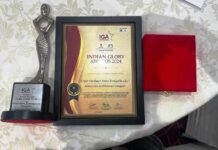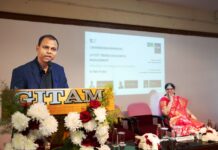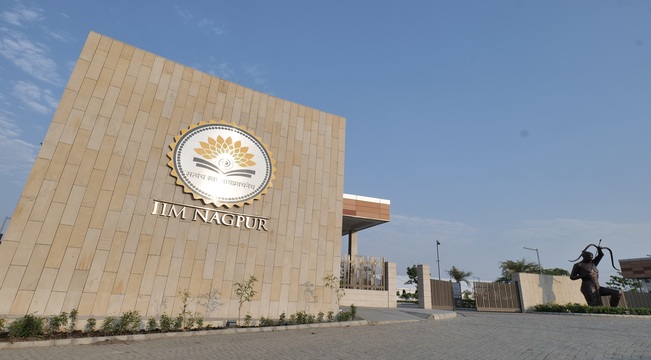Bengaluru, November 17, 2021: The Schoolbooks Archive, an open access digital archive of schoolbooks is being released today at 2.30 PM by Azim Premji University in Bengaluru. The Schoolbooks Archive can be accessed at https://schoolbooksarchive.azimpremjiuniversity.edu.in/ It currently has more than 5600 schoolbooks and schoolbook related materials from India and other countries in South Asia, spanning a period of more than 200 years.
The release event will be held at 2.30 PM, at the new campus, on Bikkanahalli Road, Sarjapura and will also be streamed on YouTube Live. Anurag Behar, Vice Chancellor of Azim Premji University, will introduce the Archive and make it available for use by the public at large. Reshmi Mitra, Knowledge Resource Centre, Azim Premji University will present the objectives, contents and how to access and use the Schoolbooks Archive. This will be followed by a Panel Discussion on “A 200-year journey through Schoolbooks in Indian Education” moderated by Sharmadip Basu, Professor, School of Arts and Sciences, Azim Premji University. The panelists include education experts, Janaki Nair, retired Professor of History, Jawaharlal Nehru University and Visiting Professor, Azim Premji University, Rimli Bhattacharya, Professor, Department of English, University of Delhi and K Subramanian, Professor, Homi Bhabha Centre for Science Education, Tata Institute of Fundamental Research, Mumbai and Varadarajan Narayanan, Professor, School of Education, Azim Premji University.
“The Schoolbooks Archive provides a window to all knowledge seekers to explore what our evolving society over two hundred years considers important knowledge to be passed on over generations of young learners in schools. The diversity of language, history and culture within the Indian subcontinent, as captured through the lens of codified knowledge transmitted through schoolbooks, allows us to engage with deeper questions about the content and aims of education. It also opens a window of understanding other countries around the world and how their schoolbooks reflect their understanding of the same questions.” says Reshmi Mitra, Head – Knowledge Resource Centre, Azim Premji University.
Contents of Schoolbooks Archives: The term Schoolbooks is used to include – Textbooks (developed for both school and teacher education), Works of reference: atlases, dictionaries, conversion tables, encyclopedias, etc, Workbooks, charts, question banks, guides, assessment sheets, etc, Instruction modules developed for teachers for using textbooks and other teaching-learning materials, Audio-visual materials. Each of the above spans all grades and subjects of school education and different programmes of teacher education. The current focus of the collection is the period 1819 to the present. All languages in which such materials are collected have been made available in language-based communities within the digital platform. The collection includes resources published by Government- Central and State level, private and NGO organizations and also those that were self-published by authors.
Apart from the school education resources described above, other related materials included in the archives cover committee reports and curriculum discussions related to textbooks and other forms of teaching-learning materials over this historical period. Other resources include draft versions of schoolbooks, reviews of textbooks published in journals and magazines, newspaper reports on schoolbooks-related debates, litigation-related materials concerning textbooks, advertisements for textbooks, catalogs of old textbook publishers and profiles of important textbook publishers and so on.
All of these will enable scholars and practitioners to explore broader questions about what an evolving society considers valuable enough to teach younger citizens in schools and how.
Target Users: The Schoolbooks Archive is designed to cater to the felt need for historically located documents and teaching learning resources that can be used by teachers and teacher educators, curriculum and textbook developers, Illustrators and designers of textbooks, historians of different aspects of education and educational institutions and historians of print, languages and script among others in their work. It is also of interest to all citizens invested in visualizing and actualizing a just, equitable, humane and sustainable society for the current and future generation of learners through our education system.
Distinguishing Features: The Schoolbooks Archive is not meant to be a mere repository – physical and digital. It distinguishes itself in the following ways –
a. The term Schoolbooks is understood in an expansive sense and this is illustrated by the range of materials we seek to collect and make available through the portal.
b. The digital archive is complemented with physical collections of these resources at the Azim Premji University library in Bengaluru as well as the Azim Premji Foundation libraries located in 153 block level Teaching Learning Centres across seven states in India.
c. Items hosted on the portal carry short descriptions, and period notes discussing trends and frameworks used for schoolbook production in that period.
d. The portal is designed to be collaborative. Users can add to these notes and post comments for each item and thus enrich the notes. They can also rate individual resources in terms of their usefulness to the user.
e. The portal hosts webinars and interviews with individuals who have been actively involved with the production of schoolbooks for use in Indian schools, as well as with researchers who have explored different aspects of schoolbook production and use.
f. It has a separate section on bibliographies related to studies on schoolbooks used in India.
g. With a strong India and South Asian focus, the Archives aims over time to expand its collection to exploring resources used for quality school education globally with a particular interest in countries with an emphasis on public education.
Corporate Comm India (CCI Newswire)
































